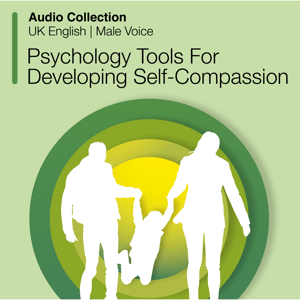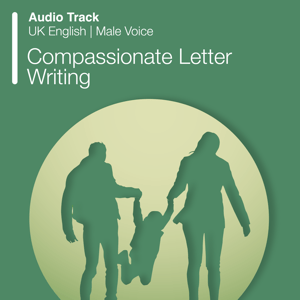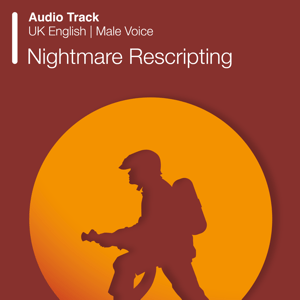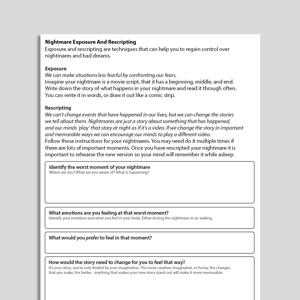Writing Therapy
Writing therapy has been defined as “client expressive and reflective writing, whether self-generated or suggested by a therapist/researcher” (Wright & Chung, 2001). Writing about traumatic, stressful, or emotional events has been demonstrated to result in improvements in both physical health and psychological well-being in clinical and non-clinical populations (Baikie & Wilhelm, 2005). Specifically, writing therapy has been investigated as a treatment intervention for conditions such as post-traumatic stress disorder (PTSD), depression, and bereavement.
Showing 1 to 4 of 4 results
Nightmare Exposure And Rescripting
Nightmare Exposure And Rescripting
Links to external resources
Psychology Tools makes every effort to check external links and review their content. However, we are not responsible for the quality or content of external links and cannot guarantee that these links will work all of the time.
What Is Writing Therapy?
Example Writing Therapy Instructions
“For the next <number> days, I would like you to write about your very deepest thoughts and feelings about the most traumatic experience of your entire life or an extremely important emotional issue that has affected you and your life. In your writing, I would like you to really let go and explore your deepest emotions and thoughts. You might tie your topic to your relationships with others, including parents, lovers, friends, or relatives; to your past, your present, or your future; or to who you have been, who you would like to be, or to who you are now. You may write about the same general issues or experiences on all days of writing or about different topics on each day. All of your writing will be completely confidential. Don’t worry about spelling, grammar, or sentence structure. The only rule is that once you begin writing you continue until the time is up (15 or 20 minutes is typical).”(Baikie & Wilhelm, 2005)References
Baikie, K. A., & Wilhelm, K. (2005). Emotional and physical health benefits of expressive writing. Advances in Psychiatric Treatment, 11(5), 338–346.
Wright, J., & Chung, M. C. (2001). Mastery or mystery? Therapeutic writing: A review of the literature. British Journal of Guidance & Counselling, 29(3), 277–291.



